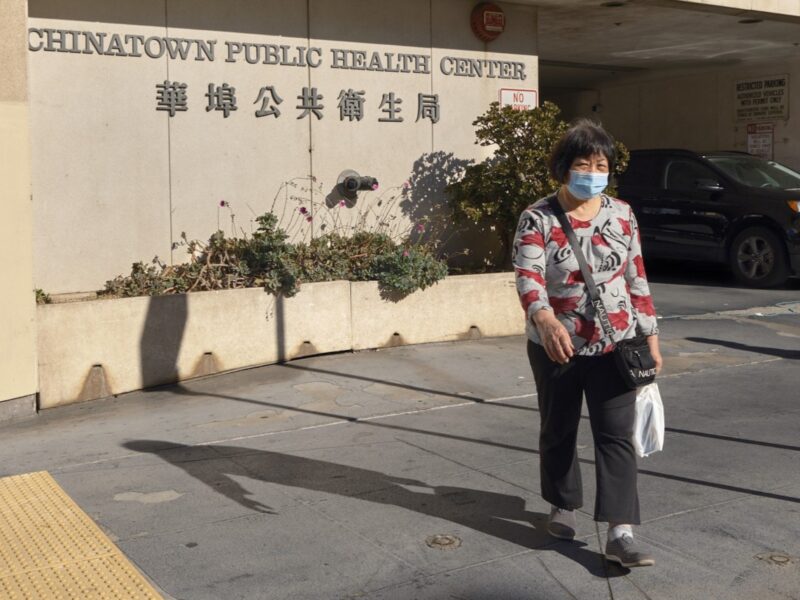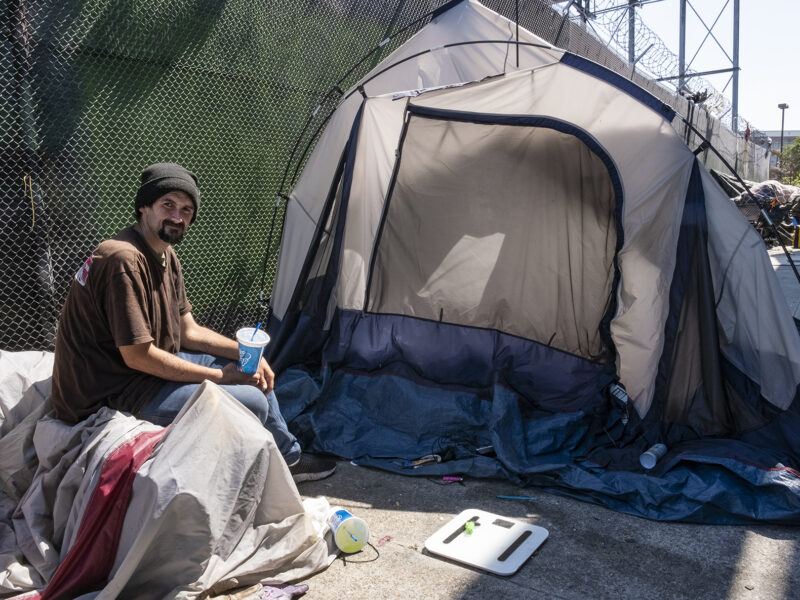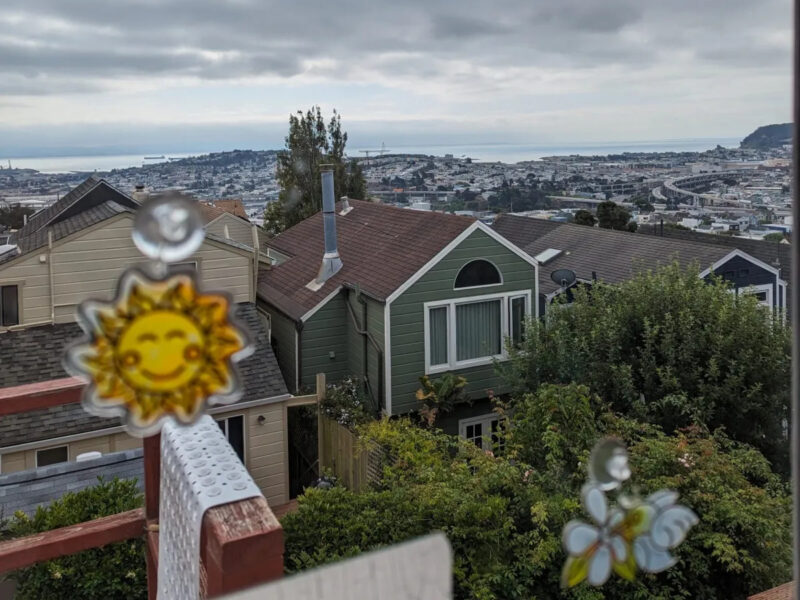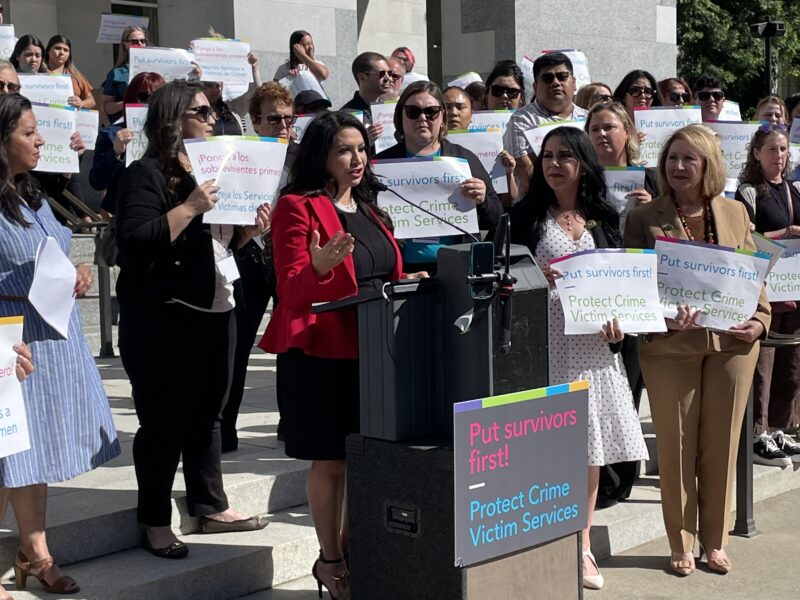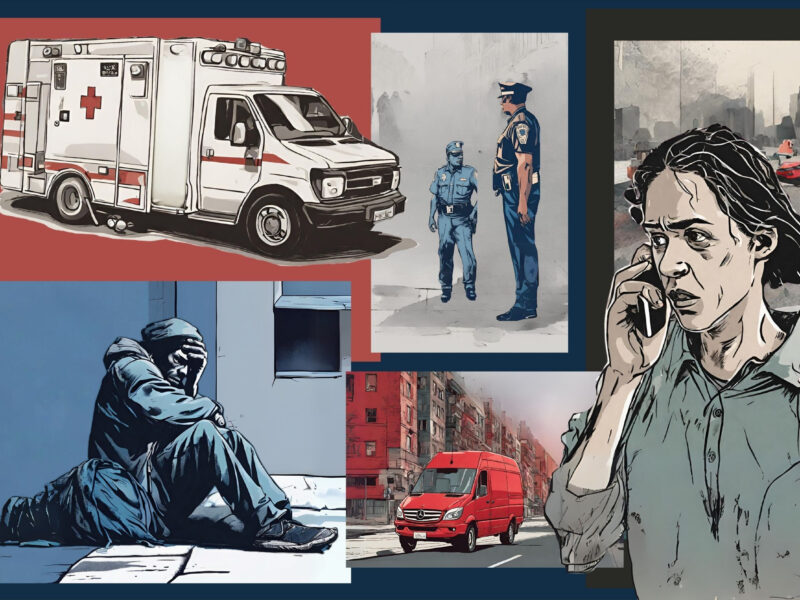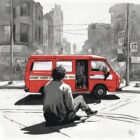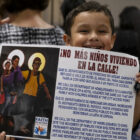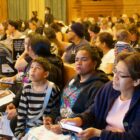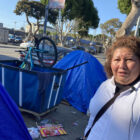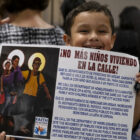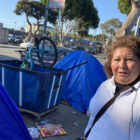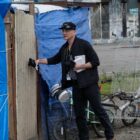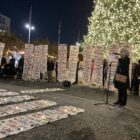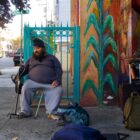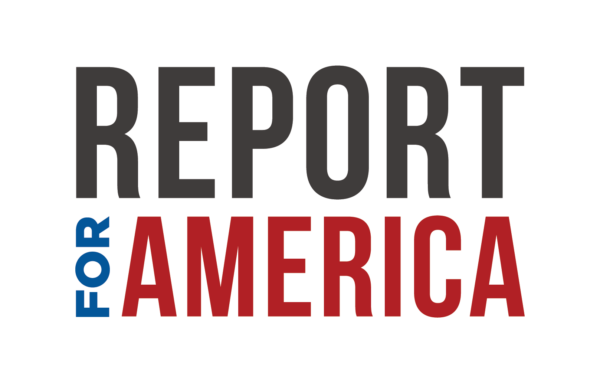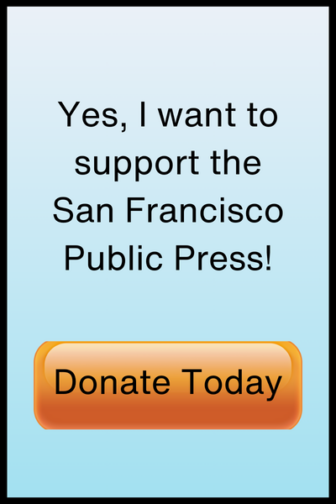See our November 2024 SF Voter Guide for a nonpartisan analysis of measures on the San Francisco ballot, for the election occurring Nov. 5, 2024. The following measure is on that ballot. Proposition B would let San Francisco borrow up to $390 million to carry out infrastructure and other projects, like upgrading health care facilities, creating homeless shelter, repaving roads and renovating Harvey Milk Plaza, the Castro neighborhood spot honoring the city’s first openly gay supervisor, who along with Mayor George Moscone was assassinated in 1978. Listen to a summary of what this ballot measure would do.
California
The Often Vicious Cycle Through SF’s Strained Mental Health Care and Detention System
Thousands of people last year fell into San Francisco’s complex, reactive, strained system for treating severe mental health and drug-related crises.
To explain how that system works and its effects on the people who enter it, we begin with the story of one man, Jay. As with many others — including those who are unhoused or are detained without their consent following a call from an alarmed observer — Jay had received temporary care, entailing multiple involuntary psychiatric holds, that failed to address his long-term problems. That left him back on the streets to fend for himself or, with the help of passersby, try again to get the aid he needed.
Immigration
Proveedores de ervicios opinan que SF subestima la necesidad que hay a pesar de que cada vez más familias migrantes buscan acceder albergues
Los proveedores de servicios han visto un aumento reciente en el número de familias migrantes sin hogar que buscan refugio en San Francisco, y dicen que el sistema de albergues de la ciudad está saturado, y a menudo falla, para recibirlos. Los defensores locales de las personas sin hogar están pidiendo ala alcaldía que satisfaga esta urgente necesidad.
Government & Politics
SF to Offer Some Homeless Migrant Families Temporary Hotel Stays, as the Rest Languish
Faced with an influx of unhoused migrant families into San Francisco, the Department of Homelessness and Supportive Housing will offer between 100 and 150 households temporary stays in hotels in the next year. That will likely fall short of addressing the full need.
Migrant families have joined service providers and faith-based advocates in a push for a policy response to the mounting crisis, including increasing access to temporary housing and providing greater transparency about where families are on the waitlist for shelter. City officials discussed potential solutions at a Monday hearing of the Board of Supervisors.
Health
Las Muertes por Sobredosis entre los Mayas en San Francisco Muestran la Necesidad Urgente de un Tratamiento Culturalmente Sensible
Desde el comienzo de la pandemia del COVID-19, los mayas de San Francisco han estado muriendo por sobredosis de drogas a tasas elevadas. Los expertos dicen que se necesitan servicios de salud más capacitados, y los proveedores deben ser culturalmente competentes y capaces de comunicarse de manera efectiva con estos residentes, que no pueden hablar con fluidez inglés o español.
Immigration
More Migrant Families Are Trying to Access Shelter While SF Underestimates Need, Service Providers Say
Service providers have seen a recent increase in the number of unhoused migrant families seeking shelter in San Francisco, and say that the city’s temporary housing system is straining, and often failing, to receive them. Local homeless advocates are calling on City Hall to meet the need.
“Civic” Podcast
Overdose Deaths Swell Among SF’s Maya Residents, Highlighting Urgent Need for Culturally Competent Drug Health Services
Since the beginning of the COVID-19 pandemic, San Francisco’s Mayans have been dying of drug overdoses at elevated rates. More robust health services are needed, experts say, and providers should be culturally competent and able to communicate effectively with these residents, who may not be fluent in English or Spanish.
Homelessness
Booted From the Army, He Spiraled. Now He Works to Solve the Veteran Homelessness Crisis.
Homeless veterans make up only a small fraction of America’s homeless population, and they have been a priority in efforts to house the homeless. Since 2019, Congress has committed billions of dollars in resources to end veteran homelessness, and the number of unhoused veterans, who make up 8% of the homeless nationwide, has been cut almost in half since then, though last year saw a 7.4% uptick in numbers.
But the proportion of homeless veterans living outdoors has increased. California, in particular, has more homeless veterans lingering on the street than any other state. More than 7,400 veterans live outside. Add in another 3,100 other veterans who live in shelters or temporary housing, and that’s 10,500, or almost one-third of all homeless veterans in the country.
A severe shortage of affordable housing and the tremendous cost of living in California are partly to blame. But it’s estimated that more than half of homeless veterans suffer from a mental illness, and 70% are affected by substance use disorder; often the two groups overlap. For those veterans, if outreach, supportive housing, and a veteran’s readiness for change don’t align, homelessness often remains the default.
Overdose Crisis
2023 Is San Francisco’s Deadliest Year on Record for Drug Overdoses
Last Thursday San Francisco’s chief medical examiner released the city’s updated overdose death count — 752 so far — making 2023 the worst year on record for drug-related fatalities. One-third of those people were listed as having no fixed address. Later that day, a crowd gathered at Civic Center Plaza to remember more than 420 who died in the city while experiencing homelessness this year.
From the Newsroom
Madison Alvarado on KALW’s Panel About Homelessness
Staff reporter Madison Alvarado spoke on KALW’s townhall panel addressing homelessness.
Homelessness
Missed Connections: SF Shelter Hotline Staff Could Not Reach Most People Who Called for Help
Data from San Francisco’s Department of Homelessness and Supportive Housing show that accessing shelter is very difficult for unhoused people in San Francisco due to a lack of available beds and other barriers.
